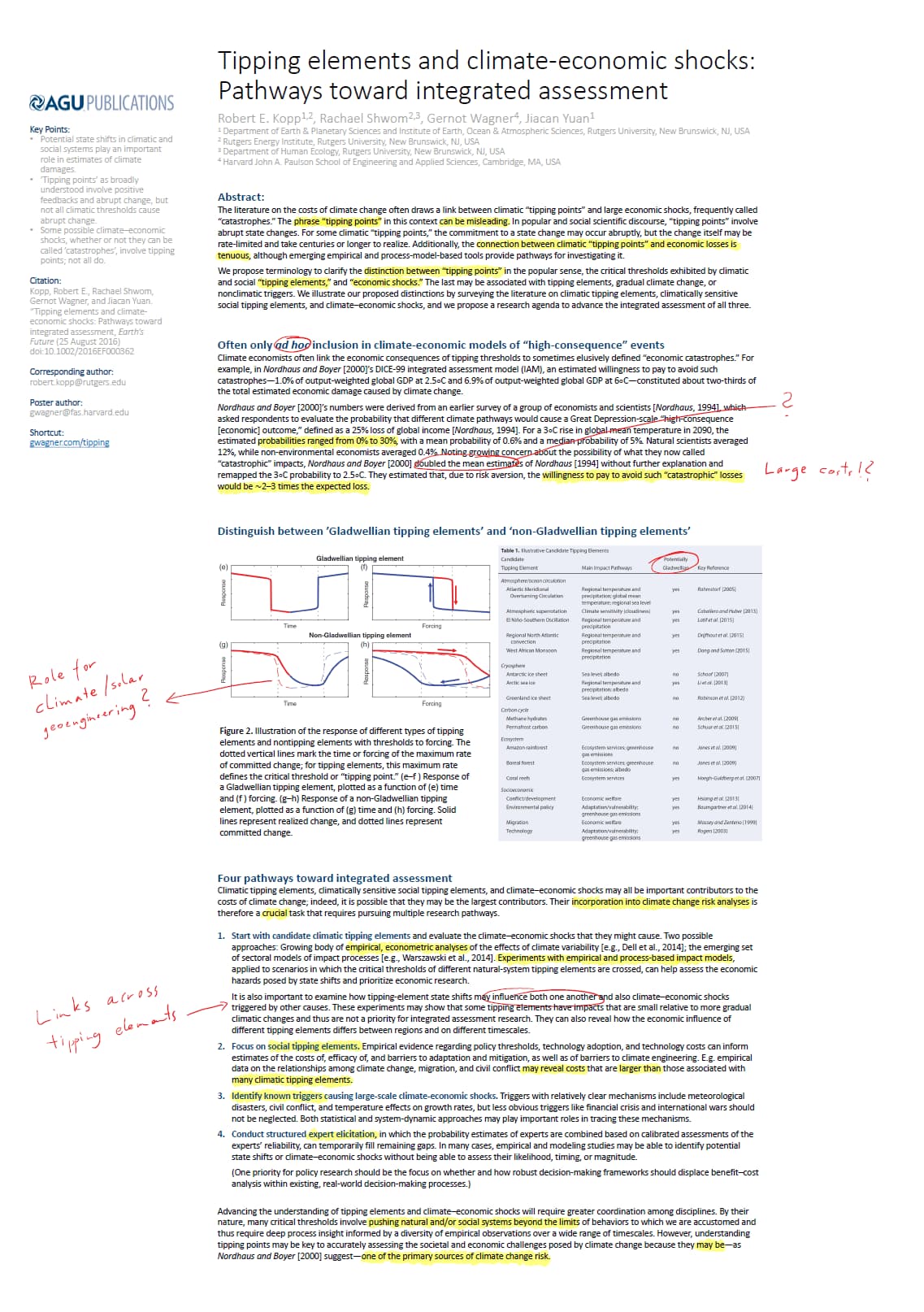Tipping elements and climate-economic shocks: Pathways toward integrated assessment
by Robert E. Kopp, Rachael Shwom, Gernot Wagner, and Jiacan Yuan

Abstract:
The literature on the costs of climate change often draws a link between climatic ‘tipping points’ and large economic shocks, frequently called ‘catastrophes’. The use of the phrase ‘tipping points’ in this context can be misleading. In popular and social scientific discourse, ‘tipping points’ involve abrupt state changes. For some climatic ‘tipping points,’ the commitment to a state change may occur abruptly, but the change itself may be rate-limited and take centuries or longer to realize. Additionally, the connection between climatic ‘tipping points’ and economic losses is tenuous, though emerging empirical and process-model-based tools provide pathways for investigating it. We propose terminology to clarify the distinction between ‘tipping points’ in the popular sense, the critical thresholds exhibited by climatic and social ‘tipping elements,’ and ‘economic shocks’. The last may be associated with tipping elements, gradual climate change, or non-climatic triggers. We illustrate our proposed distinctions by surveying the literature on climatic tipping elements, climatically sensitive social tipping elements, and climate-economic shocks, and we propose a research agenda to advance the integrated assessment of all three.
Full text: “Tipping elements and climate-economic shocks: Pathways toward integrated assessment”
Poster presented at "1.5 degrees: meeting the challenges of the Paris Agreement," Oxford:



